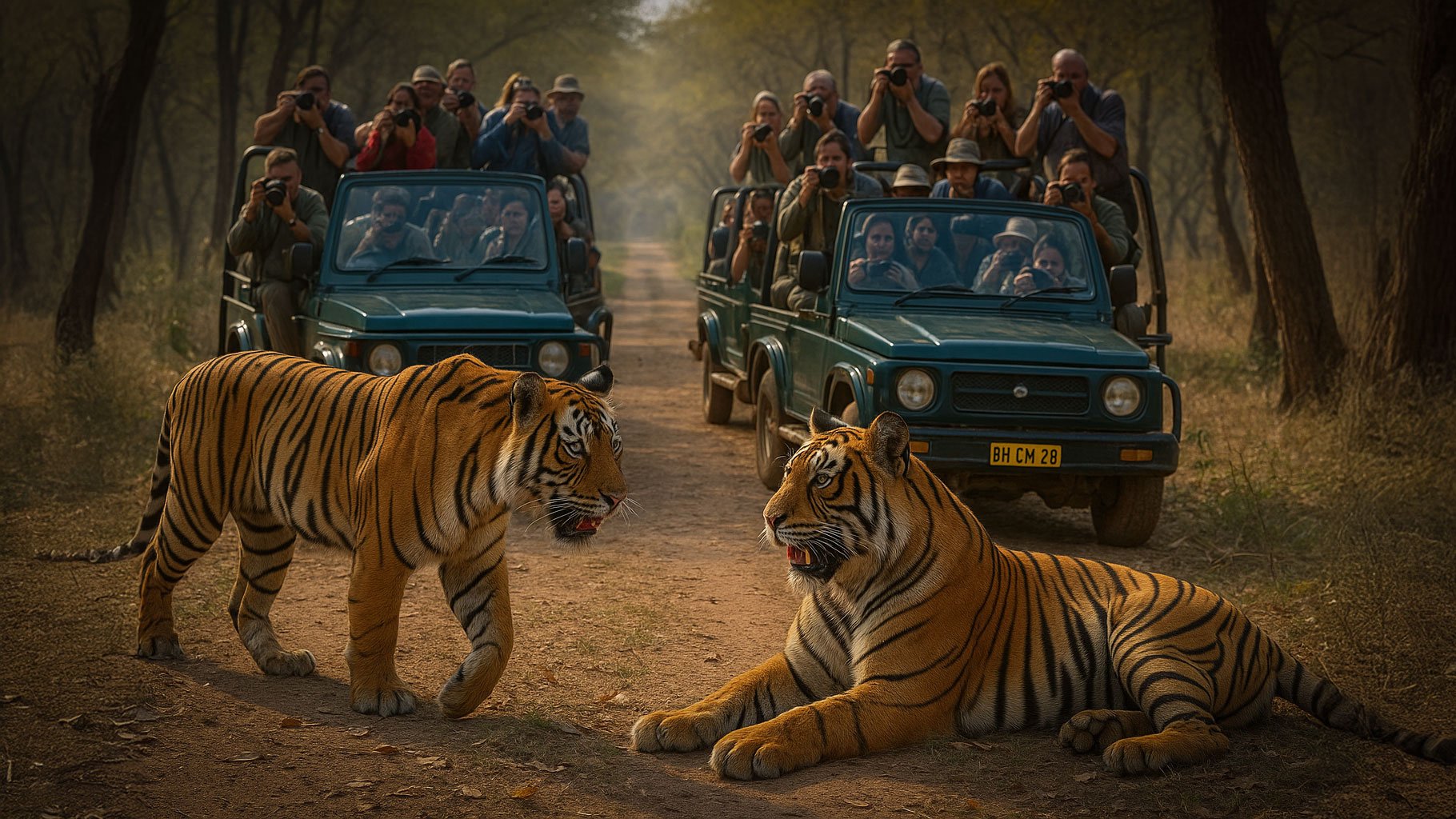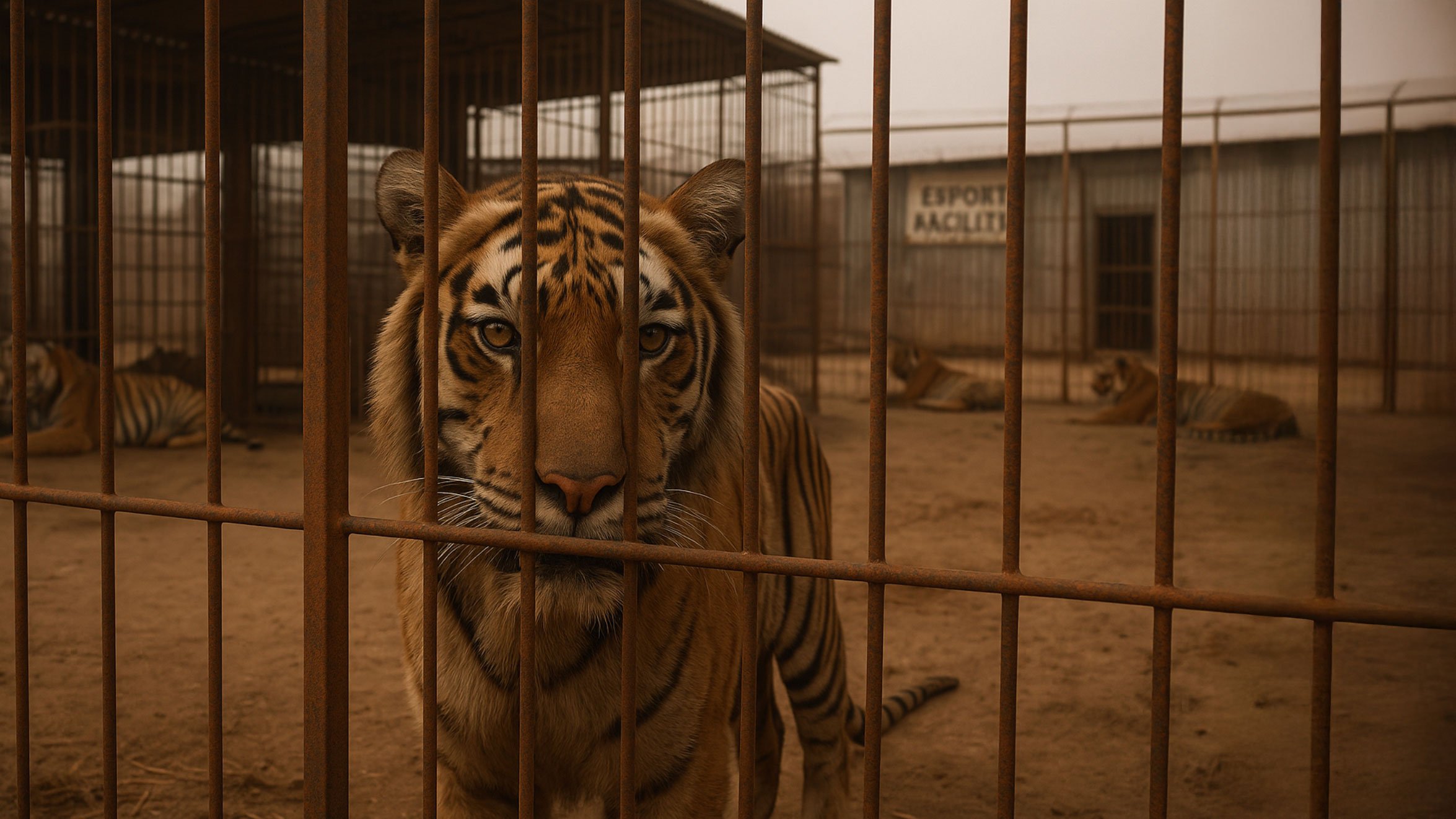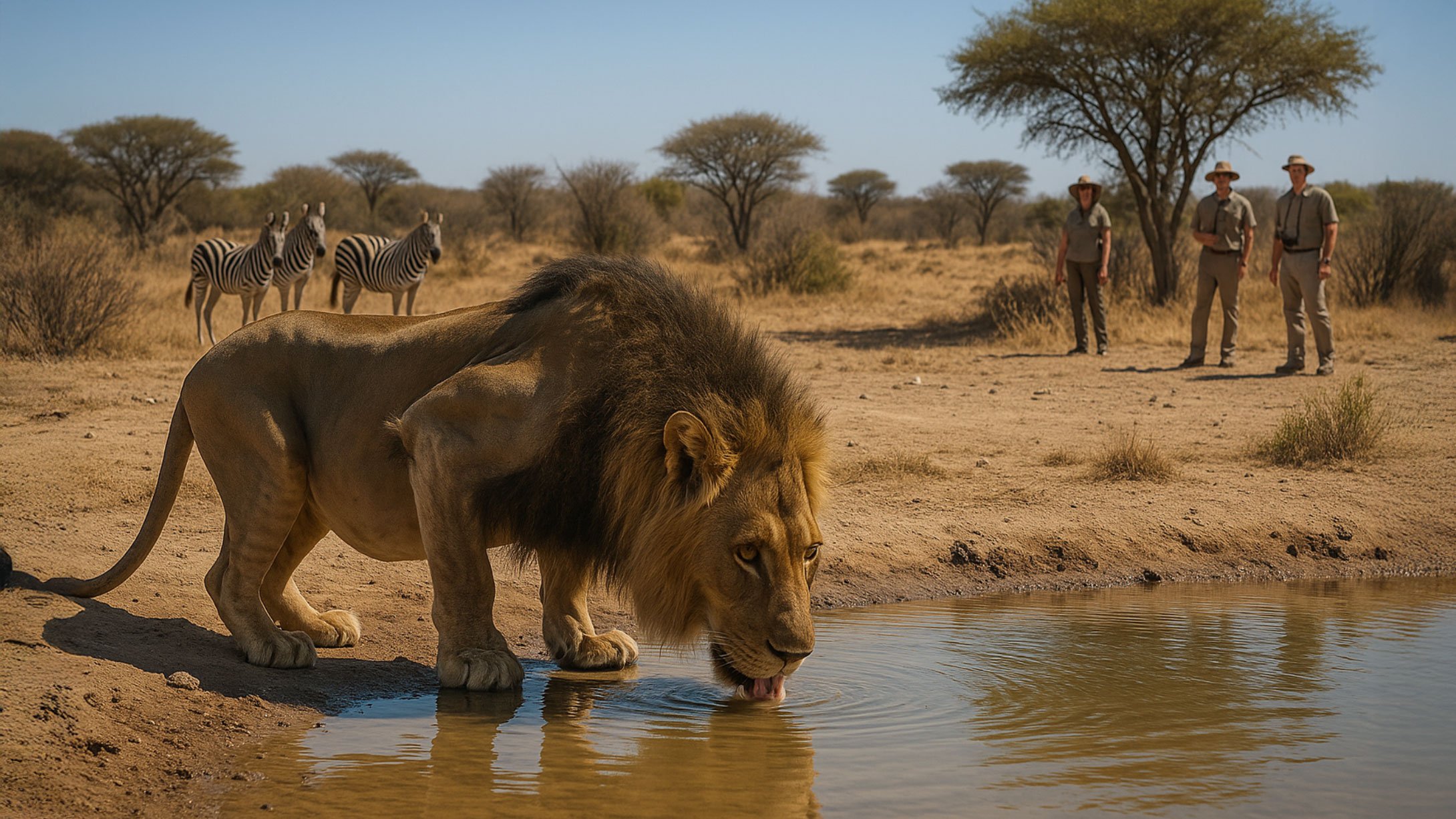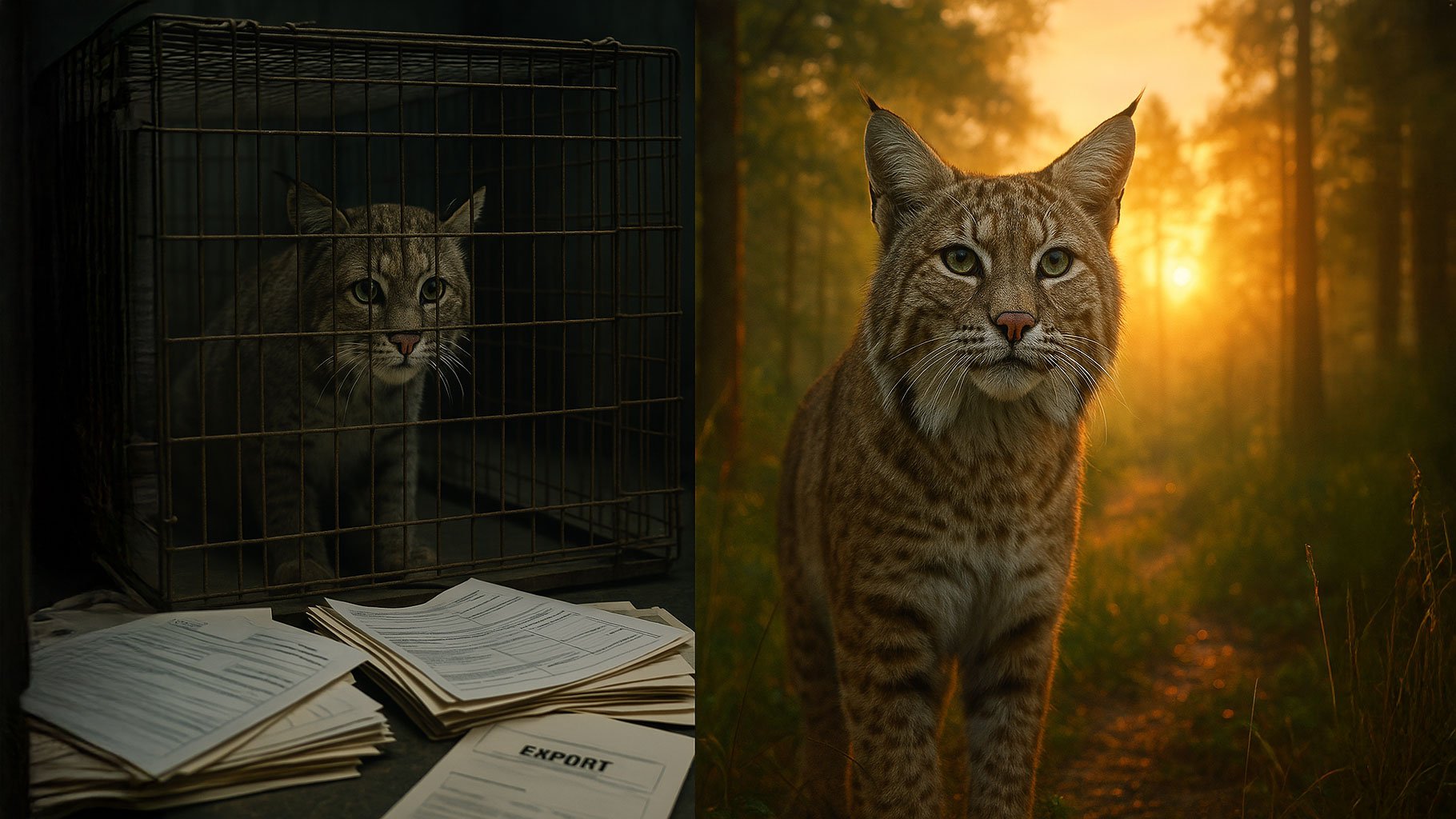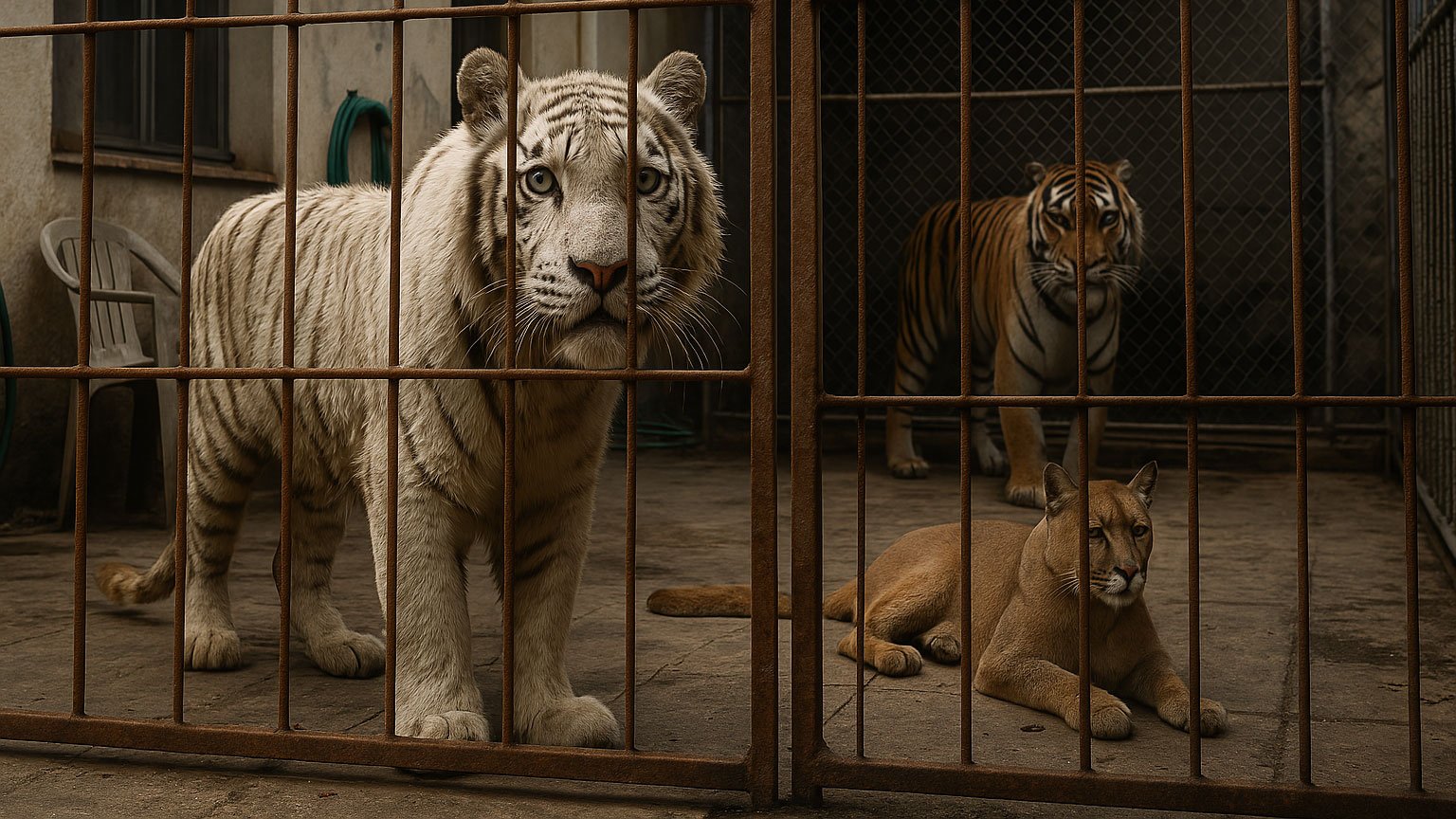The Poisoned Legacy: A Tiger Mother's Final Lesson
In the shadowed quiet of India’s MM Hills Wildlife Sanctuary, a tragedy unfolded so cruel it stole the breath from even the most seasoned forest rangers.
She was a mother—majestic, fierce, nurturing. A tigress who had raised four cubs under the watchful canopy of Karnataka’s southern forests. Her days were spent teaching them the secrets of stalking deer through dry grass, how to find water in the parched heat, and how to remain invisible despite being royalty of the jungle. But on a single, silent morning in June, their lives were all extinguished—together.
Five tigers. One mother. Four cubs. All dead.
Discovered lying near a poisoned cow carcass, their lifeless bodies told a story of fear, desperation, and a devastating failure of coexistence. The suspected cause: villagers, desperate to protect their livestock, had laced the cow’s remains with poison—setting a trap born of fear, not malice. But the result was the worst single-day loss of tigers in any Indian sanctuary’s recorded history.
India has long been the last true stronghold of the tiger, home to over 70% of the world’s remaining wild population. Karnataka, in particular, has been celebrated for its conservation leadership. The death of this mother and her cubs didn’t just rob the forest of five tigers—it punctured a hole in decades of hard-won progress.
Eshwar B. Khandre, Karnataka’s Minister for Forest, Ecology and Environment, called the deaths “unnatural,” promising criminal investigations and accountability. But while justice is necessary, it cannot restore what’s been lost. No legal sentence will bring back the cubs whose play now echoes only in memory.
This isn’t just a local crisis—it’s a global wake-up call.
The tension between people and predators has grown sharper as wild spaces shrink. Livestock graze deeper into forests. Tigers, facing habitat encroachment, edge closer to villages. In the resulting overlap, conflict flares. But poisoning—indiscriminate and irreversible—destroys not only individual tigers, but entire bloodlines. The death of one breeding female undermines years of population recovery work.
And yet, amid the heartbreak, there is still hope.
There are solutions—tested, scalable, and humane. Programs that compensate herders for livestock losses. Solar-powered predator deterrent lights. Community education initiatives that shift perspectives from fear to pride. Conservationists working directly with villagers to ensure no one has to choose between their livelihood and a tiger’s life.
Big Cat Rescue is one of the organizations committed to that vision. Having helped pass the Big Cat Public Safety Act in the U.S., ending the private ownership and petting of tigers, their mission now extends beyond borders—into sanctuaries and forests like MM Hills. Your support enables initiatives that save tigers in the wild by funding better enforcement, education, and alternatives to conflict.
Because the mother tiger who died should not be remembered only as a statistic. Her life had value, her death a lesson. If we listen—truly listen—we might still rewrite the ending for others like her.
Let this be her legacy: Not a poisoned loss, but a powerful reason to act.
Source: https://www.thehindu.com/news/national/karnataka/tiger-and-her-four-cubs-found-dead-in-mm-hills-wildlife-sanctuary-in-chamarajanagar-district-of-karnataka-poisoning-suspected/article69739927.ece

